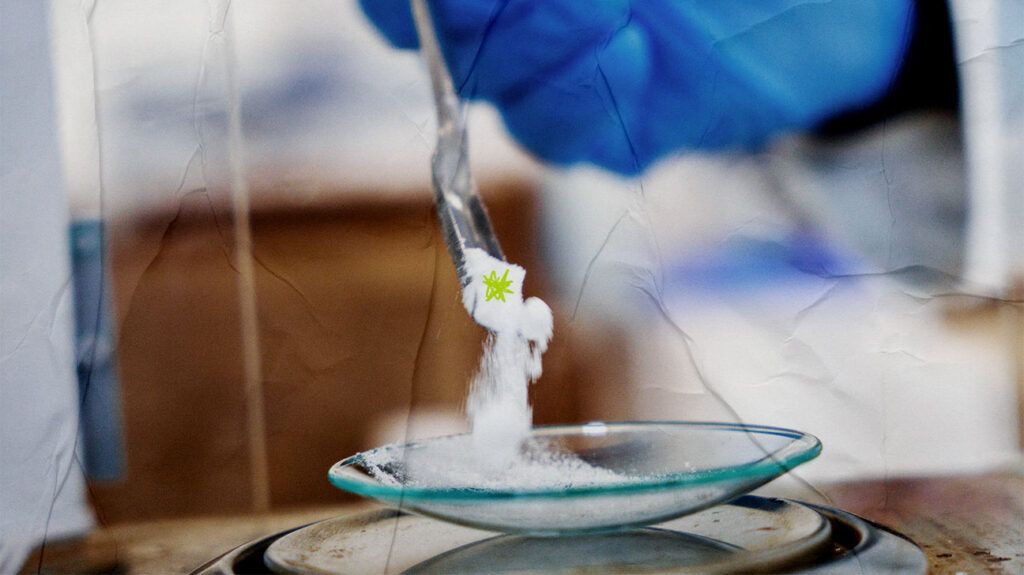Lithium is a medication that is typically for treating mood disorders, such as bipolar disorder. However, lithium may also be an effective treatment for schizophrenia.
Schizophrenia is a complex mental health condition that causes various symptoms, including hallucinations and delusions.
The primary treatments for schizophrenia include antipsychotic medications, which help reduce symptoms. However, some people may not respond to antipsychotic medications or require additional treatment.
Lithium is a mood-stabilizing medication that healthcare professionals primarily use to treat bipolar disorder. However, some lithium can also support the treatment of schizophrenia.

Lithium may be useful in treating people with schizophrenia who do not respond to antipsychotic medications.
However, the evidence for lithium’s effectiveness in treating schizophrenia is mixed.
A major
However, the review found no high-quality evidence to support the use of lithium as a stand-alone treatment for schizophrenia or schizoaffective disorder
Limited evidence is available since this review. One
While evidence is lacking for lithium as a treatment for schizophrenia, it is an
Psychosis is a collection of symptoms
The American Psychiatric Association recommends treatment to include antipsychotic medication alongside coordinated care. This is a type of treatment that includes various recovery-orientated approaches and shared decision-making with the person, their family, and care teams.
People who experience psychosis and have a diagnosis of bipolar disorder may receive lithium. The medication is useful for stabilizing mood, which bipolar disorder disrupts.
Preventing psychosis is challenging as most people experience symptoms for over a year before receiving treatment. It is unclear whether the mood-stabilizing impact of lithium would be beneficial during this period.
Read about the symptoms of schizophrenia.
Lithium is a naturally occurring light, whitish-silver metal.
In psychiatry, lithium compounds, such as lithium carbonate and lithium citrate, can act as mood stabilizers. Lithium is particularly effective in managing manic episodes and preventing relapses in bipolar disorder.
The drug is Food and Drug Administration (FDA) approved for bipolar disorder treatment, and there is consistent evidence for its effectiveness.
For example, a
However, some
Lithium’s exact mechanism of action is still unclear. However, lithium appears
Lithium can also cause
In rare cases, some people can experience lithium toxicity, where they have too much of the substance in their blood. This can cause more severe symptoms, such as blurred vision and lightheadedness. This requires immediate medical attention as it can lead to kidney failure.
Lithium can affect the brain in several ways.
For example, it has neuroprotective effects that protect certain brain regions from damage potentially resulting from mania or depression.
It may regulate neurotransmitters that are disrupted in schizophrenia, such as:
It can also influence how the brain sends signals, contributing to mood stabilization.
While lithium may play a role in some treatment plans, it is not the primary treatment for schizophrenia. Other treatments include:
- Antipsychotic medications: These medications help to manage symptoms that include hallucinations and delusions
. - Psychotherapy: Cognitive behavioral therapy (CBT) and other forms of talk therapy can help individuals manage symptoms and improve daily functioning
. - Rehabilitation: This can include a range of options to support someone’s recovery and improve their daily functioning, such as training for employment or social skills development.
People with schizophrenia
Some people with schizophrenia may also need additional support for related problems. For example, some may require support with drug or alcohol misuse. In severe cases, hospitalization may be necessary to stabilize a person experiencing a psychotic episode.
Learn more about schizophrenia treatments.
Mental health resources
Visit our dedicated hub for more research-backed information and resources on mental health and well-being.
Lithium is a mood-stabilizing medication primarily for treating bipolar disorder. There is some evidence that lithium can improve the treatment of schizophrenia, but more research is necessary to draw any firm conclusions on its effectiveness.
It is unlikely that lithium can stop psychosis.
Lithium is a naturally occurring metal with a long history of use in treating bipolar disorder. However, it is still unclear how the drug works.
Schizophrenia typically requires a combination of treatments, including antipsychotic medication and psychotherapy. Healthcare professionals may use lithium in some cases — for example, where mood stabilization is necessary in someone who also has bipolar or major depressive disorder.
